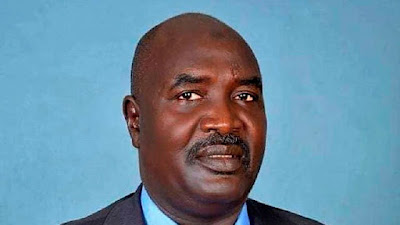IGAD said in a statement today it had agreed to request a summit of another regional body, the 10-member Eastern Africa Standby Force, "to consider the possible deployment of the EASF for the protection of civilians and guarantee humanitarian access". Sudan is a member of both bodies, as are Ethiopia, Kenya, Somalia and Uganda.
Unlike the talks in Jeddah, the IGAD meeting in Addis Ababa today was attended by members of a civilian coalition that shared power with the military in Sudan before a coup in 2021. IGAD said that along with the African Union, it would immediately start a "civilian engagement process" aimed at delivering peace. Read more.
Report by Reuters reprinted at yahoo.com
Reporting by Dawit Endeshaw and Hereward Holland
Writing by Duncan Miriri; Editing by Peter Graff
Published Monday 10 July 2023, 4:18 PM GMT+1 - here is a full copy:
Eastern African bloc seeks summit to deploy regional force in Sudan
ADDIS ABABA (Reuters) - An eastern African bloc called on Monday for a regional summit to consider deploying troops into Sudan to protect civilians, after nearly three months of violence between the army and a paramilitary faction.
Fighting that erupted on April 15 in Khartoum, Sudan's capital, has spread to other parts of the country and driven more than 2.9 million people from their homes.
The Intergovernmental Authority on Development (IGAD), made up of eight states in and around the Horn of Africa, met in the Ethiopian capital Addis Ababa to kick-start a peace process for the conflict in Sudan.
But the initiative faced a setback as a delegation from Sudan's army failed to attend the first day of meetings, having rejected Kenya's president as head of the committee facilitating the talks.
IGAD said in a statement it had agreed to request a summit of another regional body, the 10-member Eastern Africa Standby Force, "to consider the possible deployment of the EASF for the protection of civilians and guarantee humanitarian access".
Sudan is a member of both bodies, as are Ethiopia, Kenya, Somalia and Uganda.
Diplomatic efforts to halt fighting between Sudan's army and the paramilitary Rapid Support Forces (RSF) have so far proved ineffective, with competing initiatives creating confusion over how the warring parties might be brought to negotiate.
IGAD said it regretted the absence of a delegation from the Sudan army, which it said had earlier confirmed attendance.
Sudan's foreign affairs ministry, which is controlled by the army, said the delegation did not turn up because IGAD had ignored its request to replace Kenya's President William Ruto as head of the committee spearheading the talks.
Ruto "lacks impartiality in the ongoing crisis," the ministry said through the state news agency. Last month it accused Kenya of harbouring the RSF.
Neither Ruto's office nor the Kenyan ministry of foreign affairs responded immediately when Reuters sought comment. The Kenyan government said last month the president was a neutral arbiter who was duly appointed by the IGAD summit.
Following the meeting, Ruto called for an unconditional ceasefire and the establishment of a humanitarian zone — spanning a radius of 30 kilometres in Khartoum — to aid the delivery of humanitarian assistance.
Talks hosted in Jeddah and sponsored by the United States and Saudi Arabia were suspended last month. Egypt has said it would host a separate summit of Sudan's neighbours on July 13 to discuss ways to end the conflict.
Unlike the talks in Jeddah, the meeting in Addis Ababa was attended by members of a civilian coalition that shared power with the military in Sudan before a coup in 2021.
IGAD said that along with the African Union, it would immediately start a "civilian engagement process" aimed at delivering peace.
FILE PHOTO: Man walks while smoke rises above buildings after aerial bombardment in Khartoum North
(Reporting by Dawit Endeshaw and Hereward Holland; Writing by Duncan Miriri; Editing by Peter Graff)
View original: https://news.yahoo.com/eastern-african-bloc-seeks-summit-151822183.html
______________
Related reports
Sudan Watch - 27 May 2023
Eastern Africa Standby Force (EASF) starts 2-week training rapid reaction forces at UN centre in Uganda
https://sudanwatch.blogspot.com/2023/05/eastern-africa-standby-force-easf.html
[Ends]





